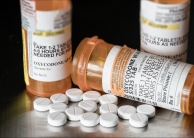Featured Article:Placebo Administration to Depressed Patients: An Analysis of the Ethics of the Placebo in Clinical Practice
By
2012, Vol. 4 No. 04 | pg. 1/2 | »
IN THIS ARTICLE
KEYWORDS
According to recent estimates, over nine percent of the United States population has some degree of depression—a proportion that makes depression one of the most common and serious mental conditions in the country (“An Estimated 1 in 10 U.S. Adults Report Depression”). Characterized by “feelings of sadness, loss, anger, or frustration [that] interfere with everyday life,” (Zieve and Merrill) depression is a mood disorder of the body and of the mind. Although commonly caused by stressful personal events, depression can also be somewhat mysteriously spurred by changes in the biochemistry of the brain, particularly changes in dopamine, serotonin, and/or norepinephrine production (Zieve and Merrill). Because these two major factors play a role in the development of the condition, it is often difficult to distinguish if the condition is of psychological or of physiological origins—or of both. There are a number of established treatment options available to patients with depression, such as selective serotonin re-uptake inhibitors (SSRIs), serotonin norepinephrine reuptake inhibitors (SNRIs), and other antidepressant medications, and new placebo-controlled trials are conducted often to treat the physiological aspect of the condition (Zieve and Merrill). Often, however, patients do not respond to or receive enough clinical benefit from available active medications, so their doctors may prescribe placebos to them. The use of placebos in clinical practice has stirred controversy within the medical community because of its lack of consistency with the traditional guidelines of medicine. In clinical trials for antidepressant medications, the placebo forms the backbone of nearly all those trials by functioning as a control to assess the efficacy of a novel active drug. Although placebos have been used throughout the world in different societies for centuries, their widespread use in psychiatry did not occur until the first placebo-controlled trial was conducted in 1922 (Shorter 193). Since then, placebo-controlled trials have become commonplace within the scientific community and ethical studies are carried out regularly to reevaluate the placebo in an era of great reliance on drug therapies. The majority of these ethical discussions, however, have focused on the use of placebos in clinical research, in which the placebo is used as a means of comparison to a novel medication (Lichtenberg, Hersco-Levy, and Nitzan 551). The scientific community generally agrees on the use of placebos in research settings provided that certain ethical guidelines are followed, such as using a placebo only “in the absence of existing proven therapy” (World Medical Association), if there are convincing reasons for doing so, or if only minor conditions are being assessed (World Medical Association). The administration of the placebo in clinical practice, however, has stimulated controversy within the medical community because, often, physicians deceive patients in order to extract what is known as the placebo effect (Lichtenberg, Heresco-Levy, and Nitzan 551). Because of this controversy, an analysis of the ethics of administering placebos to depressed patients in clinical practice is important in order to find out if this act opposes present guidelines. The primary focus is the American Medical Association’s guidelines, which stipulate that using the placebo in clinical practice without the knowledge and consent of the patient could negatively influence the doctor-patient relationship (American Medical Association).In order to assess the subject, three primary aspects of the placebo effect in depression were reviewed: The strength of the placebo effect, the mechanisms by which the placebo effect occurs, and the ethics of placebo use in clinical practice. An understanding of these three aspects of the placebo effect in clinical practice with respect to depression will reveal if the benefits of the placebo effect can be harnessed without compromising the traditional values of medicine. The definition of the placebo is difficult to express in clear terms, as many researchers have different opinions on the inert medication’s true definition—particularly in regards to if the placebo can be defined to have a physiological and psychological aspect or exclusively a physiological aspect. For the sake of clarity, however, the placebo as described in this paper is defined to be a “pill… or procedure as an alternative to, or in the absence of, a standard, proven therapy when the effect, if any, of that pill or procedure is expected to be mediated by psychophysiological mechanisms…” (Lichtenberg, Heresco-Levy, and Nitzan 551). Current Ethical Guidelines for Placebo AdministrationIn this discussion of the ethics of the placebo in clinical practice, it is important to describe the ethical guidelines established by the AMA itself. As per the AMA’s “Code of Medical Ethics,” placebos are generally discouraged in medical practice because its use may “undermine trust, compromise the patient-physician relationship, and result in medical harm to the patient” (American Medical Association). However, the AMA also states that placebos may only be allowed in clinical practice “if the patient is informed of and agrees to its use” (American Medical Association). Furthermore, the “physician need neither identify the placebo nor seek specific consent before its administration” (American Medical Association) because the “physician respects the patient’s autonomy and fosters a trusting relationship” (American Medical Association). The Strength of the Placebo Effect The administration of placebos to depressed patients in clinical practice is only justifiable if placebos are truly effective in benefitting a large proportion of those patients. After all, an analysis of the ethics of placebo administration would be counterintuitive if the placebo itself is not worthy of practical clinical application. To assess the efficacy of the placebo, previous placebo-controlled trials must show a substantial placebo response rate in order to justify the application of placebos to clinical practice. Also, the only way ethics committees—and the medical community as a whole, both patients and physicians—will openly accept the widespread use of placebos as part of a standard treatment of depression is if the placebo has some sort of clinical significance. Indeed, this is the case, as previous clinical trials for placebos in depressed patients have shown that the magnitude of the placebo effect is actually quite strong, providing the notion that the placebo could potentially be nearly as effective as any sort of active medication—that in terms of its effects, the placebo is a quasi-active medication. As Dr. Khan—Founder of the Northwest Clinical Research Center—and his colleagues assert in their article “Magnitude of Placebo Response and Drug-placebo Differences across Psychiatric Disorders,” the mean percentage symptom improvement of depressed patients in placebo groups is close to 35% (746). In addition, another meta-analysis by Dr. Rief and his colleagues, “Meta-analysis of the Placebo Response in Antidepressant Trials,” found that “67.6% of the improvements in the drug group were attributable to the placebo effect” (4) based on data from ninety-six antidepressant trials. They clearly conclude that “for clinical practice, it should be kept in mind that the placebo response in the treatment of depression is substantial” (7). By no means, however, is the placebo response rate higher or even equivalent to that of active antidepressant medications; of course, if such were the case, there would be no need for any active drugs in medical practice. Dr. Khan’s study found that the mean percentage symptom improvement for antidepressants was close to 45% as compared to the 35% improvement for the placebo (746), and an analysis of antidepressant response rates, “Predictors of Antidepressant Response,” by Dr. Goodwin found that the average response rate for antidepressants is approximately 65% (153). Although there is a large difference between antidepressant and placebo response rates, the magnitude of the placebo response rate should not be regarded as insignificant because the placebo has clearly brought significant clinical benefit to many depressed patients in clinical trials. Rather, the placebo should be considered as a potential alternative treatment option for depressed patients. Also important to note is that the placebo response rate has slowly been increasing over time, suggesting that the placebo has the capability of becoming even more clinically significant than it is at present. A study by Dr. Walsh, a professor of Pediatric Psychopharmacology in Psychiatry at Columbia University, and his colleagues, “Placebo Response in Studies of Major Depression: Variable, Substantial, and Growing,” concluded that the placebo effect in antidepressant trials varies but has generally increased in the past few years (1845). Their review found that “the average proportion of [depressed] patients per study who responded while receiving the placebo was 30.0%... and this proportion increased significantly with year of publication” (1842). With the notion that the magnitude of the placebo effect in clinical trials for depression is slowly increasing over time, doctors—and of course their patients—could increasingly benefit from using the placebo as a treatment option in everyday practice. Because of the increasing placebo response rate and the large amount of data from clinical trials for antidepressants that suggests the strength of the placebo, the primary concern about the placebo lies not in its effectiveness but in the ethics of its administration by clinicians. Causes of the Placebo Effect In order to better assess if the placebo is ethical in clinical practice with respect to depressed patients, an understanding of the causes of the placebo effect in the course of the condition is necessary. After all, if the placebo is inert, then it should, in theory, not produce such a strong placebo effect in depressed patients. As stated earlier, this is not the case, making the placebo a somewhat mysterious medication. To make the placebo even more mysterious, Dr. Khan asserts that the placebo effect is heterogeneous across different psychiatric conditions (748), suggesting that different conditions are more susceptible to the placebo—a confusing finding, as it indicates that placebo effect seems to occur by different mechanisms of action or even due wholly different causes in different psychosomatic conditions. In the case of depression, present research points to a unique neurological mechanism of action associated with the placebo in depressed patients, suggesting that the placebo is not as inert as may have previously been thought. As Dr. Mayberg, a current professor of Psychiatry and Behavioral Sciences and Neurology at Emory University, and her colleagues emphasize in their article “The Functional Neuroanatomy of the Placebo Effect,” the “placebo response [in depressed patients] was associated with regionally specific changes in brain function” (731) and “comparable brain changes were seen with both drug and placebo administration” (731). Because the placebo seems to have a physiological impact on the brain, it is not erroneous to suggest that the placebo can be considered just as biologically active as are established medications for depression. In addition, Dr. Leuchter, a professor in the Department of Psychiatry and Behavioral Sciences at David Geffen School of Medicine at UCLA, and his colleagues wrote “Changes in Brain Function of Depressed Subjects during Treatment with Placebo” based on a clinical study that they conducted on depressed patients. From this study, they suggest that “administration of an inert pill…appears to be an active treatment” (127) because “placebo responders showed a change in prefrontal cordance that differed in both direction and time course from the change in the medication responders” (128). Therefore, though placebos and antidepressants may show similar symptomatic improvement, the two treatments actually seem to have very different physiological mechanisms. The conclusions reached by Dr. Leuchter were also independently come upon by Dr. Fuente-Fernandez and his colleagues, who wrote in their study “The Placebo Effect in Neurological Disorders,” that the physiological impact of the placebo in depressed patients has to do with the activation of certain portions of the brain. The researchers observed that depressed patients who “respond to placebo antidepressants show a specific pattern of prefrontal activation as detected by quantitative electroencephalography” (88). They also state that this specific pattern is distinct from that found in patients who respond to active medication (88). Because of its distinct mechanism of action from that of active antidepressants, the placebo could almost be considered a drug in its own right, supposedly inert though it may be. In a later paper, “The Biochemical Bases of the Placebo Effect,” the same authors state that “today we know that there are solid biochemical bases for the placebo effect encountered in pain disorders and Parkinson’s disease” (148) and that “some hints as to the biochemistry of the placebo effect in depression are also available.” (148). Because of this, the authors believe that it is time to openly apply the knowledge of the placebo to clinical practice (148). However, contrary to the beliefs of Dr. Fuente-Fernandez and his colleagues, not enough is really known today about the mechanisms of action of the placebo effect, particularly why and how an inert medication can produce such a physiological response in patients. As such, more research will be necessary to determine the exact mechanism of action of the placebo in depression and what governs such a response. Despite that, current evidence indicates that the placebo actually has a physiological impact in patients, even though its mechanism in the brain and body may be different from that of active medications. Because of the quasi-active nature of the placebo, doctors should be able to—and willing to—embrace the placebo as a possible alternative or supplement to existing antidepressant medications even though a full understanding of its mechanism of action has not yet been obtained. In addition, the doctor-patient relationship plays a pivotal role in the treatment process of patients with depression—a role that seems to promote the placebo response and to justify the administration of placebos. As Dr. Lichtenberg and his colleagues discuss in their article “The Ethics of the Placebo in Clinical Practice,” the belief that doctors deceive their patients by administering placebos is logical if patients can only be treated “through pharmacology or similar respectable and rational procedures” (552). However, a patient is not merely treated biologically through medications but also psychologically through the encouragement and confidence of the doctor; thus, treatment is part of a biological and psychological process, a “biopsychosocial continuum” (552). Dr. Lichtenberg and his colleagues’ analysis suggests that in any clinical setting, the administration of a drug—or a placebo—is only a small portion of the entire treatment process, a process that goes beyond biomedical treatment. So although placebos have a deceptive factor, the importance of the doctor’s role in the treatment process can somewhat make up for the patient’s lack of knowledge about the medication he or she is receiving. In their article “Placebo Effects: Issues for Clinical Practice in Psychiatry and Medicine,” Dr. Straus and Dr. Cavanaugh also assert the importance of the doctor-patient relationship in promoting patient health, discussing how the “physician’s manner during consultation affects improvements in chronic neurological conditions…” (319). Through their work, the authors suggest that the placebo itself plays a fractional part of the whole treatment process and that the interaction between physician and patient is also part of that entire treatment process (319). In addition, Dr. Howard Brody, the Director of the Institute of Medical Humanities at the University of Texas Medical Branch and an avid research scientist with over three hundred papers, more directly links the subject of the doctor-patient relationship to the placebo effect in his article “The Lie that Heals: The Ethics of Giving Placebos.” He addresses that “a clinical approach that makes the illness experience more understandable to the patient, that instills a sense of caring and social support… will most likely to create a positive placebo response and improve symptoms” (117). In other words, the environment a patient is in, which is strongly influenced by the encouragement and confidence of the doctor, rather than just the placebo itself, is a major promoter of the placebo effect. Because of this, placebos are only one aspect of the treatment, and so their validity in clinical practice is strong given that all other environmental factors remain constant.Continued on Next Page » Suggested Reading from Inquiries Journal
Inquiries Journal provides undergraduate and graduate students around the world a platform for the wide dissemination of academic work over a range of core disciplines. Representing the work of students from hundreds of institutions around the globe, Inquiries Journal's large database of academic articles is completely free. Learn more | Blog | Submit Latest in Health Science |


















